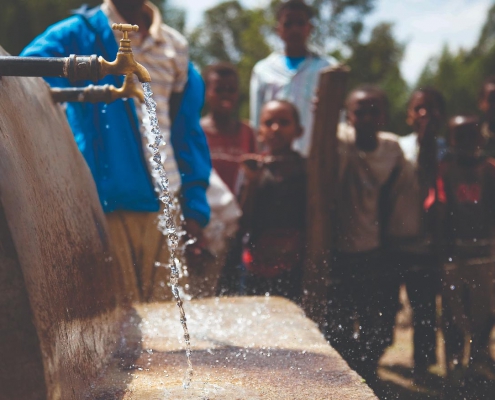Technical cooperation is a type of collaboration focused on the exchange of technical and management knowledge, with the aim of increasing the capacities of water institutions in Latin America and the Caribbean. Spain gives special priority to technical cooperation in the field of water, sanitation and purification, and shares its experience, knowledge and innovations in the sector, given our hydrological and climate situation. Within the framework of the Fund, emphasis has been placed on the technical cooperation of public institutions in the sector, with international recognition and whose added value is widely acknowledged by our partners.
There are some programmes within the framework of the Great Fund that focus on technical cooperation, such as the Regional LAIF programme or the products of the multi-donor AquaFund, in which the Water Fund participates. Within the framework of the Conference of Ibero-American Water Directors (CODIA), the Cooperation Fund for Water and Sanitation collaborates with the Directorate General for Water, which holds the Permanent Technical Secretariat of the network.
During 2020, work continued together with Tragsatec giving technical support to AECID’s Technical Cooperation Offices, and within the framework of the Fund’s programmes, in more than 10 Latin American countries. Collaboration in the area of knowledge management, institutional strengthening, water planning and accountability also continued.
In the field of sanitation and wastewater treatment, in collaboration with Centre for Public Works Studies and Experimentation (CEDEX), support has been provided for the revision of regulations in El Salvador and Guatemala, and technical advice has been provided for specific actions in programmes in Paraguay, Bolivia and Cuba.
In 2020, collaboration also continued with the Spanish Geographic Mining Institute (IGME) in the framework of the Water Fund’s support for the search for workable solutions for water supply in Guatemala City, as part of one of the Fund’s programmes.
With regard to work with water and sanitation service operators, progress has been made with the signing of a collaboration agreement between AECID and the public company EMASESA, which will boost activities to support and strengthen the operators we work within the framework of the programmes. Precisely with the support of EMASESA, a new twinning arrangement with an operator in Honduras was initiated in 2020, with the first contacts being made virtually due to the health situation.
Finally, in 2020, support was given to the Bolivian Ministry of Environment and Water, providing technical advice for the development of drought management plans in several urban centres in the country with the support of the Directorate General for Water of the Ministry for Ecological Transition and Tragsatec.
Technical cooperation in support of programmes
During 2020, six additional technical cooperation (TC) projects were approved with FCAS funds at the IDB, bringing the total number of projects under implementation to eight. COVID-19 has also entailed significant delays in implementation, requiring the re-planning of actions, the modification of contracts and a switch to virtual activities (desk work, virtual workshops, etc.). The main purpose of these collaborations is twofold: on the one hand, to support the sustainability of the actions carried out and, on the other, to take advantage of the knowledge generated during these 10 years and fill in any gaps, so that the lessons learned in different areas can be put to use in future projects.
AQUAFUND
The AquaFund is a multi-donor fund led by the Inter-American Development Bank (IDB), which develops knowledge products and platforms and replicable pilot projects, building the capacity of water institutions and providing support for various technical studies. In 2020, it had available credits of $13.7 million. Since 2008, the AquaFund’s capital amounts to $125 million, $41 million of which comes from the Multidonor AquaFund (MAF), in which Spain participates, and $84 million from the IDB’s contribution to its Strategic Development Programme for Ordinary Capital for Infrastructure (INF). Up until 2020, the AquaFund has financed 241 projects in total.


